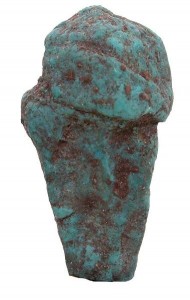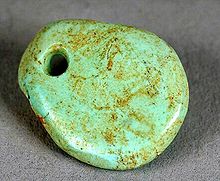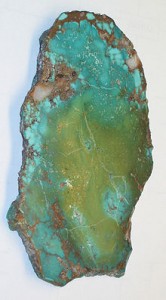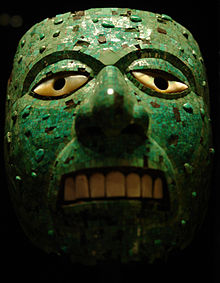Turquoise Metaphysical Properties
Turquoise is considered one of the most spiritually powerful stones on the planet. The stone has a huge following all over the world of people who believe in the metaphysical aspects of turquoise.
 One of the most widely believed perceptions about turquoise metaphysical properties is the energy surrounding the stone. Both New Age practitioners and cultures throughout the world believe turquoise is a carrier of positive energy that allows the wearer to deflect negativity and ward off depression.
One of the most widely believed perceptions about turquoise metaphysical properties is the energy surrounding the stone. Both New Age practitioners and cultures throughout the world believe turquoise is a carrier of positive energy that allows the wearer to deflect negativity and ward off depression.
It is also believed to be a stone of good fortune. When offered as a gift, turquoise metaphysical properties will be transferred to the person receiving the stone.
Many cultures and groups look at giving turquoise as a gift with high importance. Offering the stone as a gift is like handing someone positive energy, good fortune and the ability to ward off depression and sadness.
it is also widely used as a treatment stone my modern day crystal healers who believe turquoise metaphysical properties are strong enough to treat physical conditions – even protect against the negative impacts of alcohol, pollution and other toxins.
The spiritual turquoise metaphysical properties span the course of history. Many of the legends that transfer into modern American society were introduced by the Native Americans of the Southwest.
It is believed the stone can enhance psychic receptors in the body and mind, helping the wearer connect with the spiritual realm. Turquoise also protects from supernatural spirits that wish harm on the living realm.
Due to the psychic energy, turquoise can also aid in meditation, helping to clear the mind and opening a channel between the living and spiritual world
There are scores of turquoise myths related to the spiritual powers of this remarkable stone. It has symbolized wealth and good fortune in cultures throughout the world and remains one of the most revered power stones to this day.



